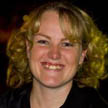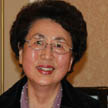I’m a Scientist is like school science lessons meet the X Factor! School students choose which scientist gets a prize of $1000 to communicate their work.
Scientists and students talk on this website. They both break down barriers, have fun and learn. But only the students get to vote.
This zone is the Disease Zone. It has scientists studying the causes and processes of illness . Who gets the prize? YOU decide!









Of all of us in the Disease Zone, I have the most trouble answering this question for other people. Kim, Natasha, Vanessa (and Soon, I think) may or will have the experience of directly helping people with their work, but I’m unlikely to ever have the same feeling. The reason isn’t because I don’t feel that my research is important, but that it can be difficult to explain to other people *why* it’s important.
The kind of science I do is known as ‘basic science’, or fundamental science. The questions I answer have no immediate practical application (like ‘applied science’ does); you can’t take the work I do on viruses and turn it into a vaccine, at least not right away. The things I learn about evolution aren’t going to make a better blender for you. So why is it important? The main reason that it’s important – for the purposes of this question – is that eventually most applied science comes from basic science! If you think of applied science as an engine, basic science is the fuel for that engine. If you stop producing basic science, sooner or later applied science will grind to a halt.
Here’s an example of how basic science can have impacts that no one could see coming. In the early part of the 20th century when physicists were first starting to work on the science of quantum mechanics (which I won’t go into here in any great detail), they produced a lot of science that had no obvious application. Most of it was incredibly mathematical, and almost all of it was too hard for any but a few people in the world to understand! No one at the time could predict that quantum mechanics would helps solve a problem a few decades later when people were trying to make smaller electronics that would work better; quantum mechanics helped scientists and engineers understand and solve problems that led to the creation of semiconductors. And if you don’t know what that means, then let me tell you this: without our understanding of quantum mechanics and the advances this helped inspire in semiconductor research, you probably wouldn’t have a smartphone, or a laptop, or any other kind of computer that didn’t take up an entire gymnasium!
Now, I’ve argued that basic science becomes applied science, but I have to say two things here. First, not all basic science will become something useful, which is why people have trouble understanding, sometimes, why we should pay tax money for it. The problem is, we can’t predict ahead of time what will have a big impact on technology and what won’t, so we just do basic science and let the rest sort itself out later. Second, the hope that my research will some day be useful to applied researchers isn’t why *I* do science. I do science because I can, because there are questions out there that need to be answered and I can help. I do it to push back our ignorance, to shed light in the dark, and that’s the impact that I feel that I’m having.
0
Well, without science and research, we would still be living like cavemen. No warm houses and hot showers, no TV, no international travel (flying), no food that you can keep in your cupboard for months, no medication for diseases and no long life!
So yes, we need science and everything we do, we eat, we see and experience has been affected by science and research in some way.
For my own research, I hope we can cure obesity. More than 50% of Australian adults and about 20% of kids are overweight or obese. Being fat increases the risk of getting cancer, problems with your heart, infections and it will reduce your life span….so if I can help people from getting fat in the first place, we may be able to reduce the number of deaths due to cancer and heart attacks!
0